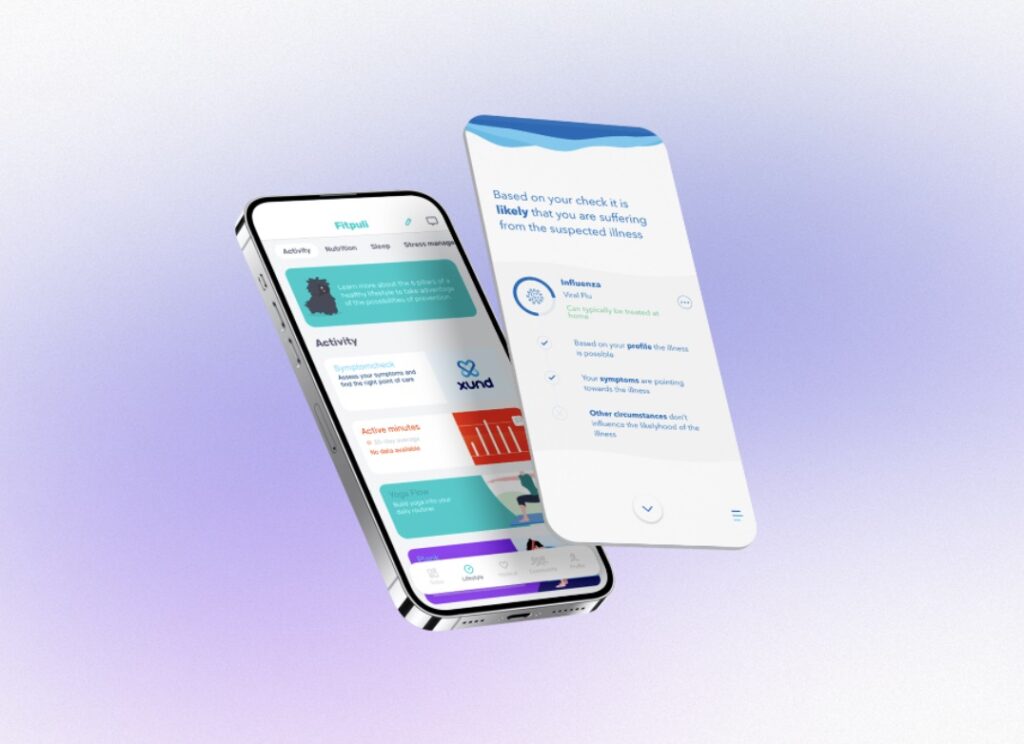Fever After Surgery: When Should You Worry About It?
Postoperative fever is not unusual, and more often than not, is not anything to worry about. However, it might be a problem if it doesn’t go away.
Postoperative fever is one of the most common compilations that can occur to a patient. The most popular side-effects after surgery are:
-
- Pain
- Dizzyness
- Sleepiness
- Thrombosis
- Sepsis, surgical site infections
- Problem with urinating
- Decubitus
- FEVER
These are completely normal effects of a surgical procedure. Most of the time, these symptoms can be prevented or they ease fast. So does fever. Statistically, around half of all patients will suffer from fever after surgery.
Postoperative fever – categories
Low fever? High fever? It does not pass even after days? When should you worry? Measure your temperature every day after surgery. It’s an easy way to follow that your healing process is going well. If you use oral temperature, don’t drink or eat anything before measuring for 30 minutes. However, we recommend to use a standard armpit temperature – or for an infant, a rectal temperature. Furthermore, try to check your fever at the same time every day. Create a system, use alarms.
Low fever
Fever is the most common side effect, and from fevers, low fever is the standard after surgeon. This means, most of the patients have a fever of 99F (37.2°C). It is usual when surgery ended with az incision, and you don’t have to worry about it. Meds from pharmacies can help reduce this fever but typically, it ends soon without taking any pills.
However, you should notify your doctor or surgeon if it doesn’t end after several days.
Moderate fever
A moderate fever after surgery is between 100-102 F (37.7-38.8°C). In this case, a report to your surgeon is never a wrong decision, but actions should be taken only if the doctor says so. Your fever will typically respond to ibuprofen or acetaminophen compounding medicals, but if not, seek medical attention again.
High fever
Above 102 F (38.8°C), you should visit a doctor – immediately. A high level of fever is dangerous, and treating it as soon as possible is a must. Ask for a quick appointment from a general practitioner, the local emergency room, or your surgeon.
High fever after surgery is a bad sign. It’s mostly treated with antibiotics.
When is it normal to have a fever after surgery?
Usually, (72%) postoperative fever occurs within 48 hours after the surgery. The causes of this fever can be different:
- Wind: the main causes can be pneumonia or atelectasis. The signs of them: decreased breathing, cough, tachypnea crackles, hypoxemia, dyspnea. A chest x-ray can explore the problem while chest physiotherapy and early mobilization are recommended to treat it properly.
- Water: the fever is caused by urinary tract infections. The clinical approach is to remove the catheter, investigate urine culture. Laboratories can help to identify the bacteria that caused the infection: the treatment depends on that too.
- Wound: Sometimes, surgical wounds are infected. Surgical site infections (SSIs) cause fever after 72 hours. Empiric antibiotic treatment is the most common in this case.
- Walking: Venous thromboembolism has significant and dangerous risks. Immobilized patients can suffer from thromboembolism: blood clots mostly develop in lower legs, but they can develop even in the arms or brain. Compression devices for physical examination and medical treatment are available.
- Medication: fever caused by medicals aren’t rare either. Sometimes people can’t handle the active ingredient of a medication. Review medication history and stop using the suspected pills can help the treatment.
- Withdrawal: Alcohol withdrawal can cause fever too. Around 7.2% of people drink alcohol on a daily basis and have an alcohol use disorder. After surgery, leaving alcohol is hard for these patients. A high dose of benzodiazepine regimen is an immediate response to this problem, but prevention is the key treatment in this case.
- “Wonky” glands: adrenal insufficiency and thyrotoxicosis are other reasons behind postoperative surgeons. They can be treated with different doses of medicals.
The seven Ws can help identify the problem and suggest the clinical approach and the type of treatment (or prevention) to overcome fever after surgery as soon as possible.
Postoperative fever is normal, and these are the leading causes. Treatment is available no matter what caused the fever.
Fever after surgery: when to call the doctor?
You don’t need to wait until you have a high (>102 F) fever: call your doctor if you reach 100 F. Also, call your doctor if your fever comes after 48 hours of the surgery.

But it’s not just about fever: fever is just the effect of an infection or other problems. Check your surgical site, your wound, and see if it’s healing well or not.
Wound infection signs:
- redness
- bad smell
- pain
- warmth
- pain
- bleeding
- pus
Other signs:
- headache
- problems with breathing
- vomiting
- urination problems (it’s painful or too frequent)
- limb paint
- diarrhea
With these symptoms, you have to call your GP and tell most accurately about the signs.
How to prevent a ‘bad postoperative period’?
We are sure you want to avoid the symptoms mentioned above. The good news are that with a little effort, you can do much to prevent postoperative fever.
First and most important: do proper incision care. Closed incisions and open incisions (waiting for a doctor to close them) require different treatments. Clean your incision thoroughly but also be gentle. Antibacterial soap is there to help.
Don’t just clean your incision; avoid making it dirty. Skip the hard works, avoid lifting heavy objects, don’t get sweaty. Change how you dress: more rigid textiles can offend your wound.
Also, helpful prevention tips:
- Quit smoking (at least for a while)
- Limit your alcohol beverage
- Wash your hands
- Stay hydrated
- Sometimes it’s even recommended to avoid sunlight.
- Ask your doctor about shaving: do it or leave it near the incision?
Conclusion: when should I worry about a fever after surgery?
Fever is an alarm, a sign that something is wrong – but it’s also very common after surgery. Patients can expect a fever even after the most intensive and thoroughgoing presentations.
If you have a low-grade fever, it’s possibly ending soon without any treatment. You should only call the doctor if you can recognize any other signs of wound infection, or you don’t feel well.
From 100-101 F (38°C), calling a doctor is to be considered, even recommended. Above 101, you absolutely must call your doctor to prevent any severe troubles.
Drawing blood cultures, having a blood test, and getting antibiotics are the first steps to treat your high fever and investigate its causes deeper.
Key takeaways:
- Know who to call
- Follow the doctors’ instruction based on your diagnosis
Based entirely on scientific evidence, our digital employee wellness programme has been created for companies looking to win big.
Puli Start
Fitpuli
Improve employee health awareness and productivity, cut illness-related costs
- Fitpuli application
- Team challenges
- Professional attitude test
Puli Plus
Fitpuli + Occupational health
(Currently only available in Hungary)
Combine our digital wellness programme with occupational health services for efficient prevention and increased savings
- Fitpuli application
- Professional attitude test
- Occupational health services
Puli Care
Fitpuli + Insurance
(Currently only available in Hungary)
Improve employee health awareness and cut illness-related costs by offering company health insurance plans and first-class healthcare to your employees.
- Fitpuli application
- Professional attitude test
- Health insurance
Puli Pro
Fitpuli + Occupational health + Insurance
(Currently only available in Hungary)
Choose our most complex and comprehensive health improvement, protection and services solution: combine the digital wellness programme with occupational health services and advanced health insurance plans
- Fitpuli application
- Professional attitude test
- Team challenges
- Occupational health services
- Health insurance
| Module | Puli Start | Puli Plus | Puli Care | Puli Pro |
| Medical |  |
 |
 |
 |
| Lifestyle |  |
 |
 |
 |
| Individual challenges |  |
 |
 |
 |
| Team challenges |  |
 |
 |
 |
| Professional attitude test |  |
 |
 |
 |
| Occupational health services |  |
 |
 |
 |
| Health insurance and medical care |  |
 |
 |
 |
| Medical care |  |
 |
 |
 |
| Appointments |  |
 |
 |
 |
What's included?
| Module | Puli Start | Puli Plus | Puli Care | Puli Pro |
| Medical |  |
 |
 |
 |
| Lifestyle |  |
 |
 |
 |
| Individual challenges |  |
 |
 |
 |
| Team challenges |  |
 |
 |
 |
| Professional attitude test |  |
 |
 |
 |
| Occupational health services |  |
 |
 |
 |
| Health insurance and medical care |  |
 |
 |
 |
| Medical care |  |
 |
 |
 |
| Appointments |  |
 |
 |
 |
Stay in the know
Sign up for our newsletter and never miss another update on digital health care, employee wellness programmes and all things health! Powered by Fitpuli’s health experts.

 Back to the list
Back to the list


